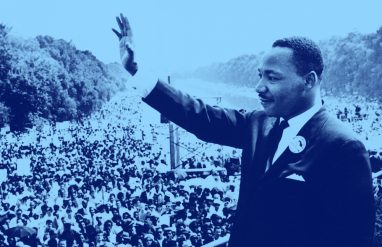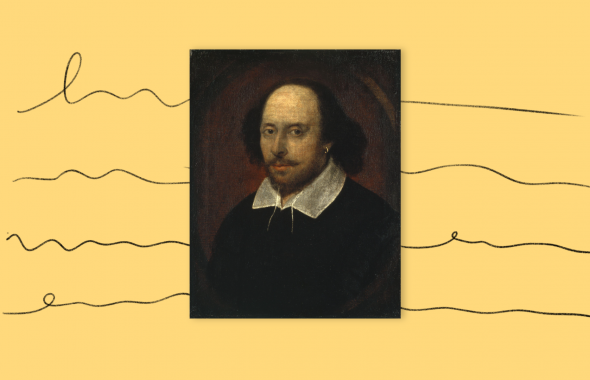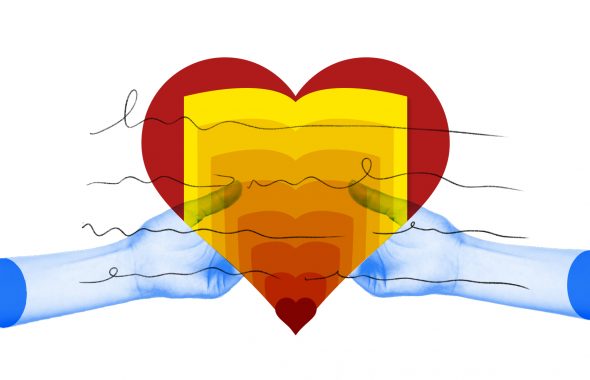Evoke and invoke are both fairly formal words that look and sound a lot alike—and, for what it’s worth, you can summon a spirit with either one (we’ll get to that, don’t worry).
But the contexts in which they’re used are often quite different. Evoke is typically used when talking about how something produces or draws out feelings, memories, or reactions.
Invoke is often used in the context of prayer and other religious, spiritual, or supernatural matters that involve calling upon a higher power for help. It’s also used in situations involving laws and rules (specifically, using them or enacting them).
We’re glad you have invoked our help in deciphering the difference between invoke and evoke. In the spirit of our vocation, we’ll even cover revoke and provoke along the way.
⚡️ Quick summary
Invoke most commonly means to call on or appeal to—people invoke the help of their god through prayer. It also means to put a rule or law into use or declare it to be in effect. Evoke means to call up or draw forth. A work of art may evoke certain feelings or reactions, for example.
What does invoke mean?
Invoke can mean “to pray to” or, perhaps more commonly, “to pray for.” You can invoke a deity or supreme being or invoke the help of one. The ancient Greeks invoked Zeus during battle. A minister might invoke God’s mercy. This sense of the word typically suggests that help or protection is being requested.
The act of doing so is called invocation, which is also another word for a prayer. But invoke is not only used in supernatural contexts. You could invoke the help of your teacher or your favorite online dictionary, for example. Similar verbs are petition and implore.
Invoke has other senses that are used in the context of laws and rules. It can mean “to declare to be binding or in effect,” as in He threatened to invoke the veto and reject the bill. It can also mean “to put (a rule, law, etc.) into use,” as in To gain an advantage, he invoked a rarely used bylaw.
Invoke can also mean “to call forth or upon (a spirit) by incantation.” Picture Aladdin invoking the genie by rubbing the lamp or a medium pretending to invoke a spirit during a séance.
Where does the word invoke come from?
The first records of invoke in English come from the 1480s. It comes from the Latin verb invocāre, in which vocāre means “to call.” In invoke, the prefix in- means, yep, “in,” so to invoke is “to call someone or something in.” What do you do when you need help? You call in reinforcements. Or you call on someone to help you. This is how invoke is used in the context of prayer.
You probably recognize the root -voke in other common words, like provoke and revoke. The prefix pro- in provoke means “forward,” so to provoke someone is to call them forth, as if to challenge them. The prefix re- in revoke means “back,” so to revoke something is to call it back.
What does evoke mean?
Evoke means “to draw something out or produce something, especially intangible things like feelings, emotions, memories, and reactions.” As the definition suggests, the reaction may be produced (created) or drawn out (meaning that it already existed internally).
For example, a painting might evoke a feeling of loneliness. A certain smell might evoke a memory. A powerful speech might evoke a strong reaction from the audience—good or bad. (If producing such a reaction, especially a negative one, is intentional, you might use the word provoke). Art is often judged by how well it evokes something from the observer—whether it draws out feelings, emotions, or some other kind of reaction.
Sometimes, the internal reaction is more than a feeling. Evoke can also mean “to produce or suggest through artistry and imagination a vivid impression of reality.” In other words, a work of art can evoke not just emotions but realistic mental images of the thing it depicts or suggests, as in The best food writing evokes flavors so well that it’s almost as if you’re tasting the food. You could use the related adjective evocative to describe something that’s particularly effective at evoking.
A synonym of evoke is conjure. Like conjure, evoke can also mean “to call up; cause to appear; summon,” as in He plans to evoke a spirit from the dead. However, this sense of the word is not commonly used—you’d more likely use invoke (this is the one area where the two words directly overlap).
We invoke you to learn the difference between another pair of words: utmost vs. upmost.
Where does the word evoke come from?
The first records of evoke in English come from around 1620. It’s based on the same Latin vocāre, “to call.” The prefix e- is a variant of ex-, which in evoke means “out” or “from.” The prefix e- is used in the same way in elicit and educe, which are synonyms of evoke.
How to use invoke vs. evoke
Despite their similarities, you won’t often find invoke and evoke in the same contexts.
You can expect to see invoke in circumstances involving prayer, requests for help or protection, or the use or enactment of rules and laws. Evoke, on the other hand, is especially used in the context of art and other creative expression that produces or draws out some kind of internal response in people.
You can remember the difference by remembering that invoke is often used in the context of calling in reinforcements or help. Evoke, on the other hand, often involves drawing out emotions.
Be careful, though, when summoning spirits—for obvious, horror movie reasons, but also because both invoke and evoke can mean to summon or call forth a spirit. Still, invoke is more commonly used in this way.
Examples of invoke and evoke used in a sentence
Here are some examples of the kinds of sentences in which you’re likely to encounter invoke and evoke:
- We must pray and invoke heavenly help in this time of need.
- In horror movies, it seems so easy to accidentally invoke a demon.
- He tried to invoke an obscure rule, but it didn’t actually apply.
- Entertainment entertains, but art evokes a reaction—often an uncomfortable one.
- Seeing that old baby blanket really evoked memories from when my son was a newborn.
- I want each of you to invoke your inner muse and compose a poem that truly evokes the sights, sounds, and smells of a summer day.














